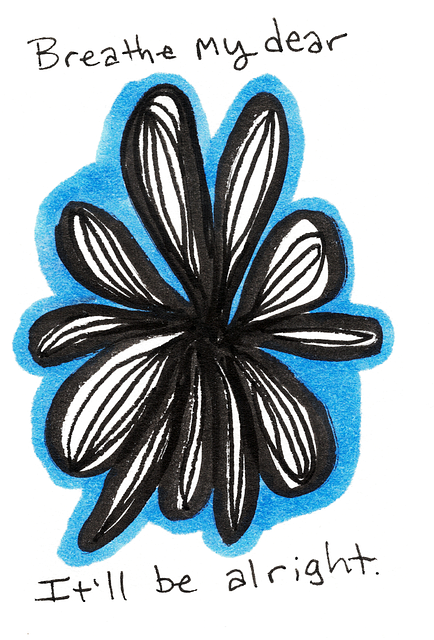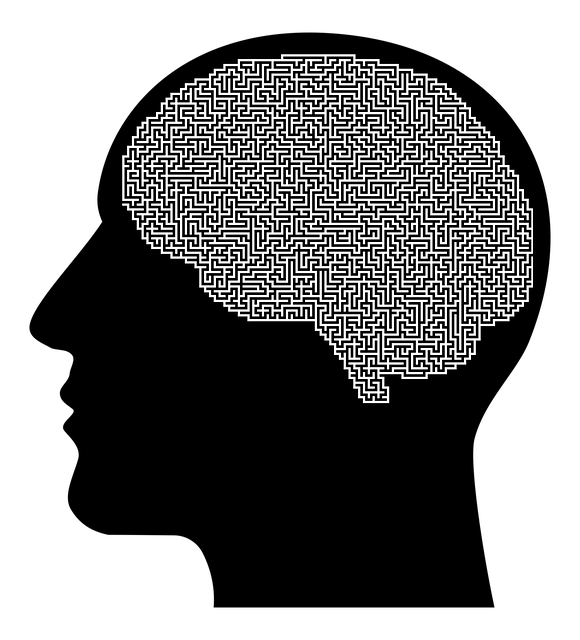Cultural competency at Wheat Ridge Terminal Illness Therapy (WRTIT) is a key driver of high-quality patient care in a diverse society. By recognizing and respecting cultural differences, WRTIT offers personalized support tailored to terminally ill patients' unique emotional needs. Their comprehensive training equips caregivers with skills like active listening and mindfulness, ensuring consistent, sensitive care. The program's success lies in self-care practices, social skills development, burnout prevention, and community outreach, ultimately improving patient outcomes, satisfaction, and trust.
Healthcare provider cultural competency training is essential in delivering quality patient care, especially in diverse communities. This article explores the critical need for such training, focusing on how it enhances interactions between healthcare professionals and patients from different backgrounds. We present a case study of Wheat Ridge Terminal Illness Therapy, highlighting successful cultural sensitivity initiatives. Key components of effective training programs are discussed, along with strategies for implementing and evaluating positive changes that sustain cultural awareness in healthcare settings.
- Understanding Cultural Competency in Healthcare: The Need for Training
- Defining Cultural Competence and Its Impact on Patient Care
- Wheat Ridge Terminal Illness Therapy: A Case Study on Cultural Sensitivity
- Key Components of Effective Cultural Competency Training Programs
- Implementing and Evaluating Change: Strategies for Sustaining Cultural Awareness
Understanding Cultural Competency in Healthcare: The Need for Training

Cultural competency in healthcare refers to the ability of providers and organizations to understand, appreciate, and effectively interact with patients from diverse cultural backgrounds. This involves recognizing and respecting differences in values, beliefs, behaviors, and communication styles. In today’s increasingly multicultural society, where one out of every five Americans identifies as a member of a racial or ethnic minority group, healthcare providers must be equipped to deliver culturally sensitive care.
The need for training in cultural competency is evident, especially when considering the potential consequences of miscommunication or insensitive treatment. For instance, at Wheat Ridge Terminal Illness Therapy, a comprehensive risk assessment for mental health professionals includes cultural competency as a key component. This is crucial because patients facing terminal illnesses often have unique cultural and emotional needs. Similarly, self-care routine development for better mental health and stress management workshops organization can be enhanced by incorporating cultural awareness, ensuring that support systems and interventions are tailored to meet the specific requirements of diverse populations.
Defining Cultural Competence and Its Impact on Patient Care

Cultural competence is a crucial aspect of healthcare delivery, ensuring that providers can offer high-quality care to patients from diverse backgrounds. It involves understanding and appreciating cultural differences in beliefs, values, and behaviors, and using this knowledge to adapt services and communication strategies. At Wheat Ridge Terminal Illness Therapy, we recognize that our community is incredibly diverse, with a rich tapestry of cultures, ethnicities, and life experiences. This cultural diversity demands that our healthcare providers possess the skills to navigate these differences effectively.
By promoting cultural competence, we aim to improve patient outcomes and satisfaction. When healthcare providers are sensitive to their patients’ cultural contexts, it fosters trust, enhances communication, and enables more accurate diagnoses and treatments. For instance, a culturally competent approach can facilitate open discussions about health concerns, self-esteem improvement, and positive thinking, especially in communities that have historically faced barriers to quality care. Our Community Outreach Program Implementation is designed to engage with these communities, offering education and support tailored to their unique cultural needs, ultimately enriching the patient experience at Wheat Ridge Terminal Illness Therapy.
Wheat Ridge Terminal Illness Therapy: A Case Study on Cultural Sensitivity

Wheat Ridge Terminal Illness Therapy (WRTIT) is a remarkable case study showcasing the power of cultural sensitivity in healthcare. This innovative program focuses on providing holistic support to individuals facing terminal illnesses, emphasizing coping skills development and mindfulness meditation techniques. By creating a safe and inclusive environment, WRTIT helps patients build resilience and navigate their journey with dignity.
The therapy’s success lies in its cultural competency training, which equips caregivers with the tools to understand and respect diverse belief systems and practices. This approach ensures that every patient receives personalized care, addressing not just physical needs but also emotional and spiritual aspects. Through WRTIT, healthcare providers learn the importance of being mindful of cultural nuances, ultimately improving patient outcomes and enhancing overall well-being.
Key Components of Effective Cultural Competency Training Programs

Effective cultural competency training programs for healthcare providers are multifaceted and essential, especially in a diverse society like ours. These programs should start with self-care practices that foster empathy, humility, and self-awareness among caregivers. By recognizing their own biases and emotional responses, providers can better navigate interactions with patients from different cultural backgrounds.
The curriculum should also incorporate social skills training, focusing on communication strategies that bridge cultural gaps. This includes learning active listening techniques, adapting language to be culturally sensitive, and using non-verbal cues effectively. Additionally, addressing burnout prevention through mindfulness exercises, stress management techniques, and support networks can enhance providers’ resilience and enable them to offer consistent care regardless of the patient’s cultural context, such as those seeking terminal illness therapy in Wheat Ridge.
Implementing and Evaluating Change: Strategies for Sustaining Cultural Awareness

Implementing and evaluating change is a critical phase in healthcare provider cultural competency training. To sustain cultural awareness, institutions like Wheat Ridge Terminal Illness Therapy must go beyond initial workshops by integrating self-awareness exercises into ongoing staff development programs. These exercises encourage professionals to examine their own biases and assumptions, fostering a deeper understanding of diverse patient perspectives. Regular reflection and dialogue facilitated through group discussions or peer feedback sessions can help normalize conversations about cultural sensitivity.
Additionally, community outreach program implementation plays a pivotal role in reinforcing these competencies. By engaging with the communities they serve, healthcare providers gain firsthand insights into unique cultural needs and preferences. This connection is further strengthened through effective communication strategies that prioritize active listening, clear explanations, and empathy. Such interactions not only enhance patient care but also contribute to building trust and fostering a more inclusive healthcare environment at Wheat Ridge Terminal Illness Therapy.
Cultural competency training is a vital tool in enhancing patient care, as evidenced by the case study of Wheat Ridge Terminal Illness Therapy. By equipping healthcare providers with the skills to understand and navigate diverse cultural contexts, we can improve outcomes and foster more sensitive, effective interactions. Implementing structured training programs, coupled with ongoing evaluation, ensures that cultural awareness remains a priority, leading to better-coordinated care for all patients.













